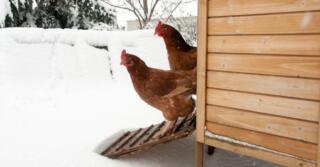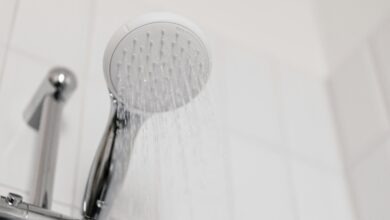
How To Winterize Your Chicken Coop for Cold Weather
Although chickens are resilient to cold climates, all flocks need protection and extra care during the winter. Properly winterizing your chicken coop will keep your feathered friends healthy, warm, and productive in cold weather. In this blog post, we’ll walk you through the essential steps to prepare your coop for frigid, snowy weather.
Eliminate Excessive Drafts
Winterizing your chicken coop starts with eliminating excessive drafts. Harsh wind chill can lower the interior temperature, causing discomfort and potential health issues. Inspect your coop for gaps or cracks, especially around windows and doors, and seal them with weatherproof caulking or insulation strips. Then, create a wind block using existing structures or plastic tarps to redirect chilly airflow away from your flock.
Ensure Coop Ventilation
While it’s crucial to keep drafts at bay, proper ventilation is equally important. Good airflow prevents moisture buildup, which can lead to respiratory problems and frostbite. Install ventilation holes near the coop’s roof above your chickens’ roosting area. This allows warm, moist air to escape without letting in cold drafts.
Replace Your Coop Bedding
Coop bedding must offer adequate thermal protection for your chickens in the winter. Straw or wood shavings make excellent bedding materials, as they provide insulation and absorb moisture. Clean out old bedding, and replace it with a fresh, thick layer. This will keep your chickens warm, make cleaning easier, and reduce the risk of ammonia buildup from droppings.
Consider the Deep Litter Method
The deep litter method is an effective way to manage coop bedding during winter. Rather than regularly cleaning out your chicken’s waste, allow it to sit and compost while adding a fresh layer of straw on top. This insulates additional heat and minimizes daily maintenance. Once it’s time to remove the bedding, add it to your garden soil to promote crop growth.
Prevent Water From Freezing
Ice can be a significant issue during winter. Ensure your chickens have access to fresh water by using heated waterers or electric deicers you can submerge in buckets and pans. These devices prevent water from freezing, making it accessible to your chickens at all times. Regularly check the water supply to ensure it’s clean and not frozen, as dehydration can quickly become a problem in cold weather.
Taking these steps makes caring for your chickens in the winter more manageable and rewarding. A properly winterized coop will keep your chickens healthy and happy throughout the cold months.






